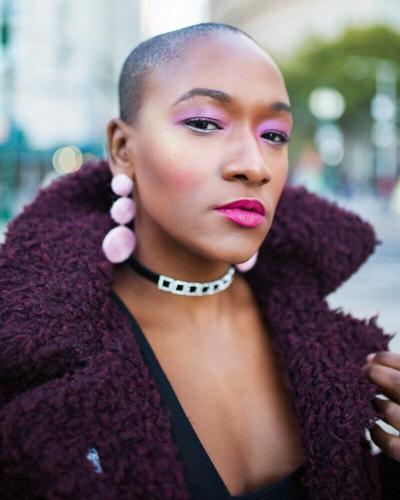
Samantina Zenon is a mental health care advocate, educator and actress, and in 2019 the Haitian-born mogul was named one of the most influential content creators by Shape Magazine. But the glitz, glamour and overall spotlight she’s earned hasn’t stopped Zenon from reaching back and reaching out to help others.
A survivor of parental abuse, Zenon sought mental help while in college after what she called a life-changing emotional meltdown. Now, she’s offering help to other sufferers by having a dialogue with survivors, hoping to help people in need heal so that they can also experience their dreams.

In an interview with NNPA Newswire, Zenon spoke of the dark and often hidden domestic violence problem in the African American community.
“I am a child abuse survivor. I was raised in a domestic violence home,” she noted pragmatically. “I suffered in silence for many years because child abuse is underreported and also because it’s the norm in the Black community. Often time, people belittle or dismissed my story, not knowing or trying to understand the pains I endured.”
Zenon’s goal of reaching out and making a difference is magnified by her more than 50,000 social media followers.
Zenon, who lives in New York, has been profiled in Shape, Thrive Global, Medium and other notable publications.
“Black people should bring more awareness to this matter, so the kids who were raised in these homes don’t end up repeating the same pattern. That’s how the story always goes,” she said.
Statistics validate her concern about domestic violence abuse in the Black community.
A 2020 report from the Black Burn Center, which advocates against domestic violence, noted that 1 in 3 women and 1 in 10 men in the United States would experience domestic violence in their lifetime. Each year, domestic violence is estimated to affect 10 million people in America, the report highlighted.
For Black women, the numbers are even more alarming.
More than 40% of Black women will experience domestic violence in their lifetime, according to the Institute of Women’s Policy Research. By comparison, 31.5% of all women will experience domestic violence.
A report from the National Center for Victims of Crime found that 53.8% of Black women had experienced psychological abuse, while 41.2% experienced physical abuse. More disturbingly, Black women are 2.5 times more likely to be murdered by men than white women.
She noted that many in the Black community had been trained to believe that child abuse is “tough love.” However, she argues, it could be the beginning of even more severe problems down the road.
“So many of us rationalize that being hurt by domestic partners is part of the love language. The reality is many Black parents are predicators to their kids. When they are having a bad day, their kids pay for it,” Zenon asserted. “When they are not getting along with their spouses, the kids become part of the problem. Based on my own experience, I was not allowed to make mistakes as a child, and when I did, it was the end of the world.
“The crazy part is, I went in the real world and dealt with people that were just like my mother because life is a circle, and when we do not have that sense of awareness, we can’t notice the red flags.”
Throughout her therapy sessions, Zenon said she addressed her past traumas and the source of her unconscious behavior that often leads to unfortunate outcomes. As a result of her breakthrough, she said she has identified self-care rituals imperative for the recovery of people who are coping with childhood traumas.
She offered that she dedicates her time to opening dialogues with other survivors hoping that the gesture will help them heal so they can go out there and make their wildest dreams come true.
“We also need to hold ourselves accountable for the kind of role model we want to be for our kids,” she continued. “When a woman stays in a domestic violence relationship, this behavior tells their kids that domestic violence is normal and okay.”
There are challenges to taking care of households alone, but Zenon demands that everyone must make time to care for their mental health.
“It affects everything we do. It affects us emotionally and physically,” she asserted. “I want our generation, and the generation to come, to make mental health a part of their normal life so we can live a healthier lifestyle. Not consistently being victims in situations, and most importantly have healthier relationships with our children, because children always look up to their parents.”
For more on the original article visit: https://www.miamitimesonline.com/lifestyles/health_wellness/facing-mental-health-issues-caused-by-domestic-abuse/article_24d97b2a-5506-11eb-afe3-4feb5aa91043.html

Be the first to comment